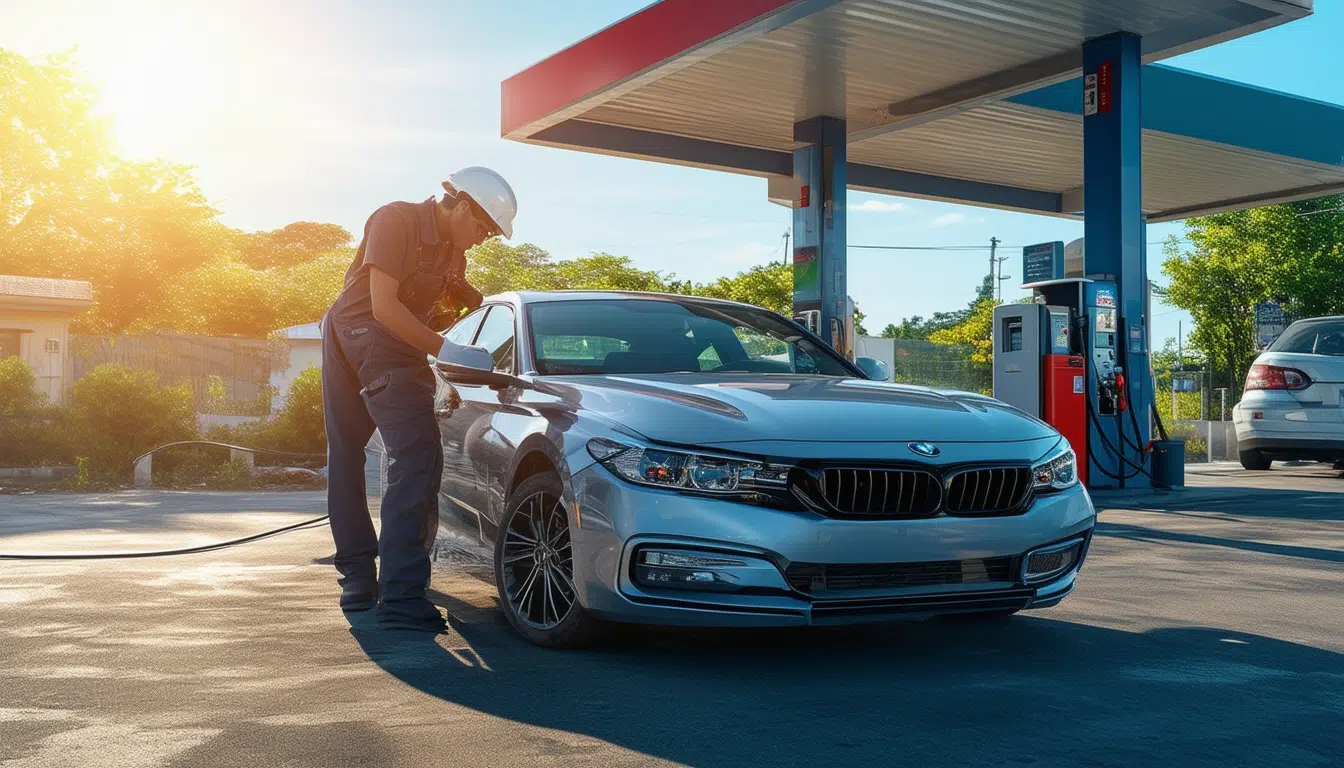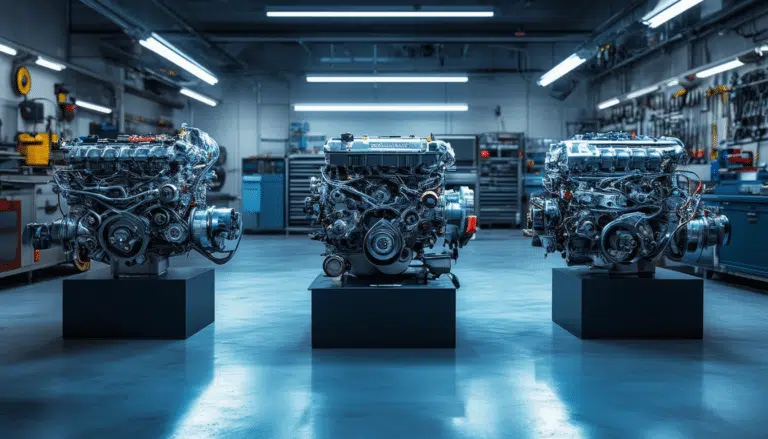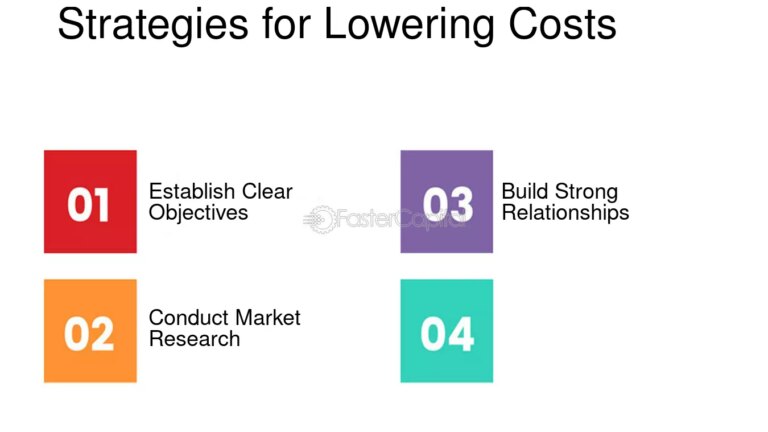Benefits of vehicle maintenance on fuel efficiency

Proper maintenance of vehicles is essential to maximize fuel efficiency. Regular care ensures that each component operates optimally, which translates into a reduction in unnecessary gasoline consumption. Additionally, performing tasks such as oil changes and periodic inspections of the fuel system not only enhances engine performance but also helps extend the lifespan of the vehicle and minimizes environmental impact. Therefore, understanding the importance of maintenance is key for any vehicle owner looking to save on fuel and improve their driving experience.
Conducting regular maintenance on vehicles is not only crucial for ensuring the safety and longevity of the car but also plays a fundamental role in fuel efficiency. Proper maintenance ensures that each component functions optimally, reducing unnecessary gasoline consumption and improving engine performance. In this article, we will explore the various benefits of vehicle maintenance and its direct impact on fuel economy.
Improvement of engine performance
One of the most important aspects of maintenance is ensuring that the engine operates efficiently. A well-maintained engine provides the necessary power for the vehicle to move easily. Regular oil changes and adjustments, for example, can increase fuel efficiency by up to four percent. Keeping the engine in optimal condition not only reduces fuel expenditures but also enhances the overall performance of the vehicle.
Review of fuel systems
Paying attention to the fuel system is vital for maximizing efficiency. A well-maintained system ensures that the fuel flows correctly to the engine, avoiding problems that can lead to increased consumption. Keeping fuel filters clean and in good condition can have significant effects on performance, achieving savings on each trip. Moreover, using quality fuel contributes to the engine operating more efficiently.
Effect of efficient driving
The driver’s behavior also influences fuel efficiency. Driving efficiently, avoiding sudden accelerations and abrupt stops, can reduce fuel consumption by up to 15 percent. Adopting more rational driving habits in combination with proper maintenance can lead to substantial long-term savings. Driving smoothly and planning routes can maximize the efficiency of each trip.
Long-term economic benefits
Performing regular maintenance not only reduces fuel consumption but can also result in significant economic savings. A vehicle that is in good condition consumes less gasoline, which translates into lower monthly expenses for the owner. By extending the lifespan of the car, unexpected costs for major repairs are minimized, making preventive maintenance a smart investment.
Importance of preventive maintenance
Preventive maintenance is key to ensuring that a vehicle not only runs well but also maintains its efficiency in consumption. Scheduling regular inspections can help detect problems before they become costly repairs. These practices not only preserve the integrity of the vehicle but also contribute to its performance in terms of fuel economy. You can read more about the importance of maintaining the engine to save fuel here.
Tire care
The condition of the tires also affects fuel efficiency. Maintaining proper tire pressure reduces rolling resistance, thus improving fuel performance. Underinflated tires create more resistance, which increases consumption. Additionally, performing periodic alignment and balancing contributes to even wear and the maintenance necessary for consumption efficiency.
Impact of speed on consumption
The speed at which one drives has a direct relationship with fuel consumption. Exceeding certain speed limits can significantly increase gasoline consumption. Maintaining a constant and moderate speed helps optimize fuel use. For more information about this relationship, you can consult the following link that explores how speed affects fuel consumption here.
Conclusion
In summary, proper maintenance of vehicles not only ensures efficient operation of the engine and other systems but also plays a crucial role in optimizing fuel consumption. From reviewing the fuel system to attending to the tires and driving habits, every aspect contributes to enhancing efficiency and achieving significant economic savings. It is important to remember that implementing preventive maintenance can make a difference in the lifespan of the vehicle.
If you want to implement methods that help you save on filling up the tank, explore the innovative German method that arrives in Spain here. You can also discover useful tips to save fuel on long trips here and learn how to reduce fuel expenses at home here.
Regular maintenance of a vehicle plays a crucial role in optimizing its fuel efficiency. By conducting periodic inspections and following the manufacturer’s recommendations, it ensures that every component of the car operates optimally. A well-maintained engine not only provides the necessary power but also reduces unnecessary gasoline consumption.
Regular oil changes are one of the most effective practices to improve fuel efficiency, as they can increase efficiency by up to four percent. Additionally, keeping the air and fuel filters clean ensures that the engine breathes properly, which translates into more efficient operation and less fuel consumption.
Driving responsibly and avoiding sudden accelerations and abrupt stops can also have a significant effect on gasoline expenditures. In fact, these good practices can reduce consumption by up to fifteen percent. Therefore, maintenance is not limited to simple mechanics; it also includes adopting habits oriented towards efficient driving.
Moreover, using quality fuels is essential. Low-quality fuels not only affect engine performance but can also increase wear on components, which in the long run will require more expensive repairs. In summary, a comprehensive approach that combines proper maintenance and responsible driving practices is essential to maximize fuel efficiency and, therefore, reduce the operating costs of a vehicle.





